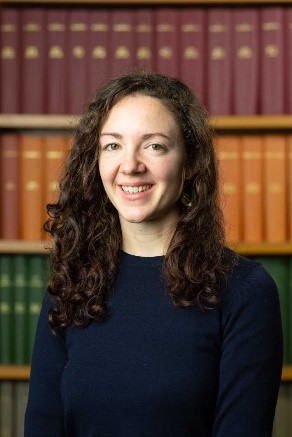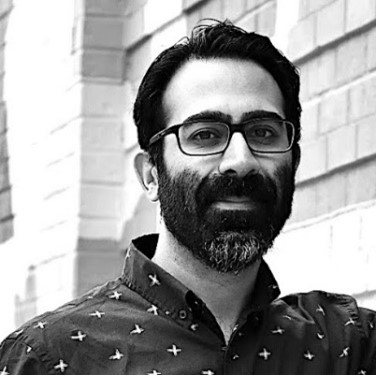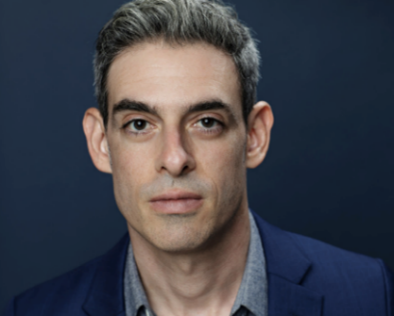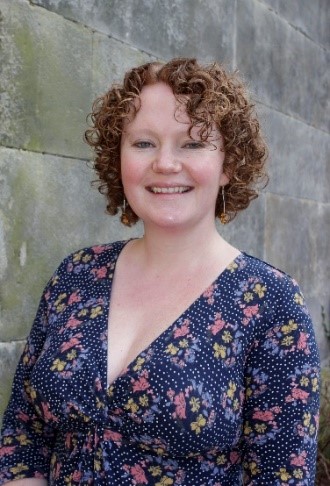Description
The goal of this workshop was to advance our understanding of the brain's reasoning algorithms, explore effects of brain disorders on these algorithms, and discuss whether computational models of reasoning can suggest novel interventions.
For this workshop, brain reasoning algorithms were defined as the neural processes underlying reasoning and logical processing. This included specific neural pathways and activity patterns that combine or transform information to derive new knowledge without further interaction with the environment (internal processing). Neural reasoning algorithms could be applied to various types of information such as quantity, number, relative spatial locations, social hierarchies, etc.
Workshop discussions focused on the types of theoretical frameworks that may underlie reasoning; on comparisons across species, development, and brain disorders; and on potential interventions based on the specific neural activity patterns underlying reasoning.
Finally, the workshop also discussed reasoning deficits as computational failures of brain algorithms, and whether computational models can help pinpoint the exact failure points in brain disorders and suggest remediation.
Agenda
| 11:00–11:10 a.m. | NIH Opening Remarks |
Session 1: Cross-Species and Developmental Insights into Reasoning Jessica Cantlon, Chair | |
| 11:10–11:40 a.m. | Mathematical Reasoning Across Species, Age, and Culture Jessica Cantlon, Ph.D., Ronald J. and Mary Ann Zdrojkowski Professor of Developmental Neuroscience/Psychology, Carnegie Mellon University |
| 11:40 a.m.–12:25 p.m. | Panel Presentations |
| 11:40–11:55 p.m. | Neural Underpinnings of Reasoning Development, Experience-Dependent Plasticity, and Individual Variability Silvia A. Bunge, Ph.D., Professor, Department of Psychology and Helen Wills Neuroscience Institute, University of California, Berkeley |
| 11:55–12:10 p.m. | What Is Unique About Human Cognition? Professor Amanda Seed, University of St Andrews |
| 12:10–12:25 p.m. | Diversity in Learning Contexts and the Emergence of Abstract Thought Caren M. Walker, Associate Professor of Psychology, University of California, San Diego |
| 12:25–12:55 p.m. | Q&A Session |
| 12:55–1:10 p.m. | Break |
Session 2: Neurobiological Foundations of Reasoning Vincent P. Ferrera, Chair | |
| 1:10–1:40 p.m. | Transitive Inference as a Probe of Normal and Abnormal Reasoning Vincent P. Ferrera, Ph.D., Professor of Neuroscience; Zuckerman Mind Brain Behavior Institute, Columbia University |
| 1:40–2:25 p.m. | Panel Presentations |
| 1:40–1:55 p.m. | Neural Basis of Generalization and Differentiation Benjamin Y. Hayden, Professor of Neurosurgery, Baylor College of Medicine |
| 1:55–2:10 p.m. | Neural Computations for Inferential Choice Helen Barron, Associate Professor, University of Oxford |
| 2:10–2:25 p.m. | Parallel Cross-Species Dynamics in Frontal Neocortex During Cognitive Sequences as a Window into Reasoning Theresa Desrochers, Ph.D., Rosenberg Assistant Professor of Brain Science, Department of Neuroscience, Carney Institute for Brain Science, Brown University |
| 2:25–2:55 p.m. | Q&A Session |
| 2:55–3:10 p.m. | Break |
Session 3: Computational Models of Reasoning Joshua Tenenbaum, Chair | |
| 3:10–3:40 p.m. | Prospects for a Unifying Computational Understanding of Reasoning in Human Brains and Human-Made Machines Joshua Tenenbaum, Professor, Department of Brain and Cognitive Sciences, Massachusetts Institute of Technology |
| 3:40–4:25 p.m. | Panel Presentations |
| 3:40–3:55 p.m. | Reasoning Through Latent Cause Inference in Computational Psychiatry and Beyond Yael Niv, Professor, Princeton Neuroscience Institute and Department of Psychology, Princeton University |
| 3:55–4:10 p.m. | Reasoning in Large Language Models and Humans Tal Linzen, Associate Professor of Linguistics and Data Science, New York University |
| 4:10–4:25 p.m. | Building from and Building Toward Human Reasoning Capabilities Sunny Khemlani, Senior Cognitive Scientist, U.S. Naval Research Laboratory |
| 4:25–4:55 p.m. | Q&A Session |
| 4:55 p.m. | Closing Remarks and Adjournment |
Speaker Biographies

Helen Barron, Ph.D.
Dr. Helen Barron studied natural sciences at the University of Cambridge before completing her Ph.D. at University College London. In her Ph.D. studies, she used magnetic resonance imaging to investigate mechanisms for memory and decision-making in the human brain, with supervision from Professor Tim Behrens and Professor Ray Dolan at the Wellcome Centre for Integrative Neuroimaging at the University of Oxford. In 2015, Dr. Barron was awarded a Junior Research Fellowship at the University of Oxford (Merton College). During this fellowship, and as a postdoctoral researcher, she worked with Professor David Dupret at the Medical Research Council Brain Network Dynamics Unit (MRC BNDU), where she developed a cross-species approach to gain new insights into the neural mechanisms that support memory and inferential reasoning. In 2022, Dr. Barron was awarded a UK Research and Innovation Future Leaders Fellowship to establish her own research group at the MRC BNDU and the Wellcome Centre for Integrative Neuroimaging. Her group investigates how cells and circuits in the brain work together to perform computations that support memory and inference in both health and disease.

Silvia A. Bunge, Ph.D.
Dr. Silvia A. Bunge directs the Building Blocks of Cognition Laboratory, which draws from the fields of cognitive neuroscience, developmental psychology, and education research. Her laboratory studies the cognitive and neural processes that support reasoning, memory, and goal-directed behavior in humans, as well as how these processes mature over childhood and adolescence, how they are shaped by education and demographic factors, and how trajectories may vary based on features of brain anatomy that mature early. To investigate these phenomena, the laboratory has, at various times, leveraged behavioral, structural, and functional magnetic resonance imaging; functional near-infrared spectroscopy; and eye-tracking methods with experimental, cross-sectional, longitudinal, and intervention designs. The laboratory’s research serves as a springboard for future clinical investigations aimed at early identification and remediation of atypical neurodevelopmental trajectories of cognitive development. Dr. Bunge recently co-authored a textbook (Bortfeld and Bunge, Fundamentals of Developmental Cognitive Neuroscience, Cambridge University Press, 2024). Her work has been recognized nationally through a number of awards and federal grants, as well as internationally through a Jacobs Foundation Advanced Career Research Fellowship and an Alexander von Humboldt Research Award.

Jessica Cantlon, Ph.D.
Dr. Jessica Cantlon uses behavioral and neuroimaging methods to study the origins of quantitative reasoning in human adults, children, and non-human primates. Her research shows the impact of early-developing and evolutionarily primitive nonverbal concepts on human thought. Using behavioral methods, Dr. Cantlon’s work observed parallel numerical processing capabilities between human children and non-human primates. Using functional magnetic resonance imaging, she found that the intraparietal sulcus processes quantitative information in children as young as 4 years of age. Her research implicates a primitive cognitive and neural basis for the development of human mathematical cognition derived from very old evolutionary processes.

Theresa Desrochers, Ph.D.
Dr. Theresa Desrochers is the Rosenberg Assistant Professor of Brain Science in the Department of Neuroscience at Brown University. Her laboratory studies how the brain tracks and controls cognitive and behavioral sequences, such as when cooking a meal or making a cup of coffee. In her research, she takes a unique cross-species approach, integrating cellular-level neuroscience insight on animal models with studies of high-level cognitive function in humans. She earned a B.S. in neural science and science education from New York University. After teaching science in a public high school for a year, she went on to earn her Ph.D. from the Massachusetts Institute of Technology with Dr. Ann Graybiel, studying the neural basis of habit learning in an animal model. She was then a postdoctoral fellow with Dr. David Badre at Brown University, where she studied human cognitive control.

Vincent P. Ferrera, Ph.D.
My research focuses on investigating how humans and nonhuman primates perform abstract cognitive functions, with a specific emphasis on generalization in novel situations. My lab employs a paradigm where participants learn simple rules by inferring from a set of premises, allowing us to assess their ability to apply learned knowledge to new contexts. Building on this approach, we have recently explored the concept of learnability – distinguishing between relationships that are genuinely learned and those that may be coincidental or random. Accurate identification of learnable versus unlearnable relationships is crucial for optimizing cognitive resource allocation. To investigate this, we employ high-density electrode arrays to record neural activity in key brain regions, including the parietal cortex, prefrontal cortex, and dorsal striatum, while monkeys perform these tasks. Our recent findings suggest that the dorsal anterior cingulate cortex (dACC) may serve as a neural correlate of learnability, potentially informing cognitive resource allocation processes such as attention and working memory.

Benjamin Y. Hayden, Ph.D.
Dr. Benjamin Y. Hayden is interested in decision-making and executive control, especially in complex naturalistic contexts. His research focuses on prefrontal cortical regions, including the anterior cingulate cortex and orbitofrontal cortex. His research focuses on intracranial recordings and includes both human subjects and animal models. All his research is aimed at developing greater understanding of psychiatric diseases, including depression, anxiety, and addiction.

Sangeet “Sunny” Khemlani, Ph.D.
Dr. Sangeet “Sunny” Khemlani is a senior cognitive scientist at the U.S. Naval Research Laboratory (NRL) Navy Center for Applied Research in Artificial Intelligence (NCARAI). He directs efforts to design computational theories and conduct behavioral experiments on the mental processes that underlie everyday human thinking and reasoning. He and his collaborators have built cognitive models of deductive, explanatory, and probabilistic inference to investigate how people think about time, space, causality, quantification, and mental states. He also has explored how these models can be integrated into robotic platforms to promote human–machine teaming. The central idea that drives his research is that humans construct sparsely coded mental representations of possibilities to reason about the world around them, which explains how they can make rapid and flexible inferences but also why they are prone to systematic error. Dr. Khemlani received a Ph.D. from Princeton University, where he was a Walker McKinney Life Sciences Fellow and a National Science Foundation Graduate Research Fellow. He joined NRL as a National Research Council Postdoctoral Associate in 2011 and was appointed to the faculty as a Karles Fellow in 2014 before becoming a senior cognitive scientist in the Human and Machine Intelligence Section, where he directs The Reasoning Lab. Dr. Khemlani serves on the editorial boards of Cognitive Science, Thinking & Reasoning, Acción Psicológica, and the Journal of Cognitive Psychology.

Tal Linzen, Ph.D.
Dr. Tal Linzen is an associate professor of linguistics and data science at New York University (NYU) and a research scientist at Google. Before starting his position at NYU in 2020, he was a faculty member at Johns Hopkins University, and before that, a postdoctoral researcher at the École Normale Supérieure in Paris. He received his Ph.D. from NYU in 2015. At NYU, he directs the Computation and Psycholinguistics Lab, which studies the connections between machine learning and human language comprehension and acquisition. At Google, he conducts research on interpretability and evaluation for large language models.

Yael Niv, Ph.D.
Yael Niv received her MA in Psychobiology from Tel Aviv University and her PhD in Computational Neuroscience from the Hebrew University in Jerusalem, having conducted a major part of her thesis research at the Gatsby Computational Neuroscience Unit in UCL. She is a professor at Princeton University, at the Psychology Department and the Princeton Neuroscience Institute. Her lab studies the neural and computational processes underlying reinforcement learning and decision making, with a particular focus on how the cognitive processes of attention, memory and learning interact to construct task representations that allow efficient learning and decision making through optimal generalization. She is co-founder and co-director of the Rutgers-Princeton Center for Computational Cognitive Neuropsychiatry, where she is applying ideas from reinforcement learning to understanding and treating mental illness.

Amanda Seed, Ph.D.
Dr. Amanda Seed is interested in the evolution of flexible behavior and abstract thought. In particular, she studies the extent to which non-human primates and human children solve problems using object concepts and causal reasoning. Dr. Seed also is interested in how other cognitive processes—such as inhibition, working memory, and attention—affect individual differences in performance on problem-solving tasks. The underlying goal motivating her research is to uncover the evolutionary changes in representational and executive processes that marked the origins of uniquely human thinking, and intelligence more broadly. To address this, she thinks we need to uncover what selective pressures favor intelligence and how diverse intelligences are shaped. To this end, she is interested in convergent evolution of intelligence in other large-brained animals, such as corvids and parrots, and comparing species to reveal common principles for the evolution of intelligence.

Joshua Tenenbaum. Ph.D.
Dr. Joshua Tenenbaum is a professor of computational cognitive science in the Department of Brain and Cognitive Sciences at MIT; a principal investigator at the Massachusetts Institute of Technology (MIT) Computer Science & Artificial Intelligence Laboratory; and a thrust leader in the MIT Center for Brains, Minds and Machines. His research centers on perception, learning, and common-sense reasoning in humans and machines, with the twin goals of better understanding human intelligence in computational terms and building more humanlike intelligence in machines. The machine learning and artificial intelligence algorithms developed by his group are currently used by hundreds of other science and engineering groups around the world. Dr. Tenenbaum received his Ph.D. from MIT in 1999 and was an assistant professor at Stanford University from 1999 to 2002 before returning to MIT. His papers have received awards at such conferences as Cognitive Science, Computer Vision and Pattern Recognition, Neural Information Processing Systems, and Uncertainty in Artificial Intelligence, as well as the International Conference on Learning and Development and the International Joint Conference on Artificial Intelligence. He has given keynote talks at all of the major machine learning and artificial intelligence conferences, as well as at the main meetings of the Cognitive Science Society, the Cognitive Development Society, and the Society for Mathematical Psychology. Additionally, he has held distinguished lectureships at Stanford University; the University of Amsterdam; McGill University; the University of Pennsylvania; the University of California, San Diego; and The University of Arizona. Dr. Tenenbaum is the recipient of the Early Investigator Award from the Society of Experimental Psychologists, the Distinguished Scientific Award for Early Career Contribution to Psychology from the American Psychological Association, and the Troland Research Award from the National Academy of Sciences, and he is a fellow of the Society for Experimental Psychology and the Cognitive Science.

Caren M. Walker, Ph.D.
Dr. Caren Walker is an Associate Professor of Psychology at UC San Diego and Principal Investigator of the Early Learning & Cognition Laboratory. She received her PhD from UC Berkeley in 2015. Dr. Walker’s research is in the area of cognitive development, which examines the various mechanisms underlying knowledge acquisition and change. Her work explores the emergence of scientific thinking, with an emphasis on how children learn and reason about causal systems. Dr. Walker is particularly interested in how even very young learners are able to acquire abstract concepts that go beyond their direct observations. Her work addresses basic questions about the nature of mental representations in human cognition and considers how environmental cues impose constraints on learning and inference. Dr. Walker takes an interdisciplinary approach, combining perspectives in psychology, philosophy, education, and computational theory. Her work has been recognized nationally and internationally by a number of awards and grants from the Jacobs Foundation, the Templeton Foundation, the American Psychological Association, and the National Science Foundation, including the CAREER award.








